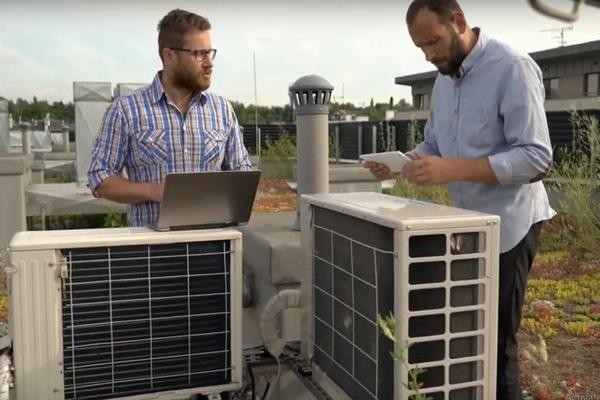Interested in a career in HVAC? Heating, ventilation, and air conditioning technicians are in high demand, making it a rewarding career path. But how long does it take to become qualified? This guide explores the various training pathways and timelines to help you launch your HVAC career.
HVAC Training Options: Timelines and Requirements
There are several routes to becoming an HVAC technician, each with varying durations:
Associate Degree Programs: The Fast Track
An associate degree in HVAC or HVACR (Heating, Ventilation, Air Conditioning and Refrigeration) is a comprehensive way to gain the necessary theoretical knowledge and practical skills. While some associate degree programs can take two to three years, accelerated programs, like the one offered at New England Institute of Technology, can be completed in as little as 18 months.
On-the-Job Training: A Longer Path
With a high school diploma, you can learn the trade through on-the-job training, assisting experienced technicians. This path typically takes longer to develop the required skills compared to formal education but provides valuable real-world experience. It’s a viable option, but be prepared for a potentially lengthy apprenticeship.
Trade and Vocational Schools: Focused Training
Trade and vocational schools offer focused HVAC programs that can last from six months to three years. These programs cover essential topics like:
- Heating and refrigeration technology
- Air conditioning and climate control systems
- Air quality and ventilation
- Electrical controls and systems
- Blueprint reading and technical math
- Piping, ductwork, and welding
 HVAC technicians working on a system
HVAC technicians working on a system
Apprenticeship Programs: Combining Education and Experience
Apprenticeship programs combine classroom learning with paid on-the-job training under the supervision of experienced professionals. These programs generally last three to five years, depending on the state’s requirements. You’ll earn while you learn, gaining valuable hands-on experience and building your professional network. Benefits of apprenticeships include:
- Applying theoretical knowledge in real-world settings
- Mastering the use of HVAC tools and equipment
- Understanding installation and maintenance procedures
- Learning advanced techniques and new technologies
Finding an Apprenticeship:
- Contact local HVAC companies directly.
- Reach out to industry associations like the Air Conditioning Contractors of America or the Associated Builders and Contractors.
- Inquire with your state’s HVAC licensing board or employment assistance representative.
HVAC Licensing: Enhancing Your Credentials
While not mandatory in all states, an HVAC license significantly enhances your career prospects. It demonstrates competency and professionalism to potential employers. Licensing requirements vary by state, often involving a written exam and documented work experience. Resources like the HVAC School website provide state-specific licensing information.
HVAC Career FAQs
Is HVAC a good career choice?
Yes, the HVAC field offers promising job security and earning potential. The Bureau of Labor Statistics projects a 4% growth rate for HVAC technicians by 2029, on par with the average for all occupations. Construction, infrastructure development, and technological advancements ensure continued demand for skilled HVAC professionals.
What is the average HVAC salary?
According to the Bureau of Labor Statistics, the median annual wage for HVAC technicians is $48,730, or $23.43 per hour. Experienced technicians often earn higher salaries.
Launching Your HVAC Career
Choosing the right training path depends on your individual circumstances and learning style. Whether you opt for an accelerated associate degree, a comprehensive apprenticeship, or another route, the HVAC industry offers rewarding opportunities for those willing to invest in their education and training.
